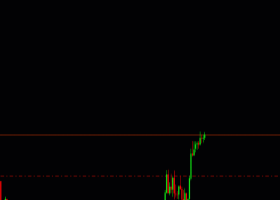
The Greek-EU standoff did not much influence European bond markets. Now that, Greece has formally obtained the extension, the country should fade from investors' focus. However, there are other risks emerging from the eurozone.
The Wall Street Journal reports that in 2014, both Spanish and Italian bonds performed stupendously. Spain had the edge, returning 16.7% versus 15.1% for Italy, according to Barclays indexes. By late October, 10-year Spanish yields were 0.4 percentage points lower than comparable Italian yields, as Madrid’s economic reforms and better growth contrasted with continued stagnation from Rome.
In 2015, however, Spain has fallen behind. Italian bonds have returned 3.2%, well ahead of 1.8% for Spanish debt. The gap between the two country’s 10-year yields has narrowed to less than 0.1 percentage point. The trend could have further to go.
While Spain has returned to growth, Italy’s economic performance is horrifying. According to Eurostat, debt in the third quarter of 2014 stood at 132% of gross domestic product, failing to register a positive quarter of growth since 2011!
However, ECB's bond buying program has shrugged off concerns that the low rate of nominal growth in Italy means the country still hasn’t stabilized that ratio even with historically low interest rates. Although both Spain and Italy will benefit from ECB's program, what the central bank is unable to do is to remove political risks.
Spain's Catalan independence issue continues to weigh. In January, Catalan President Artur Mas called for September elections that will ensure the focus remains on the independence question. As of the national level, Span's Podemos party talked of debt restructuring, massive monetary expansion, tax increases and targeted nationalizations of key industries. Although parliamentary elections aren’t due to be held until the end of the year, the rise of Podemos in itself will influence the stance of other political parties.
In the meantime, Italian Prime Minister Matteo Renzi has started to make progress on reforms, including on labor markets and the banking system. The Organization for Economic Cooperation and Development says that if fully implemented, the reforms under way could increase GDP by 6% over 10 years.
While Italy may perform well, there are doubts about Spain, as political risks weigh a lot. Investors should be wary whether Greece's scenario is possible in Spain as well.


